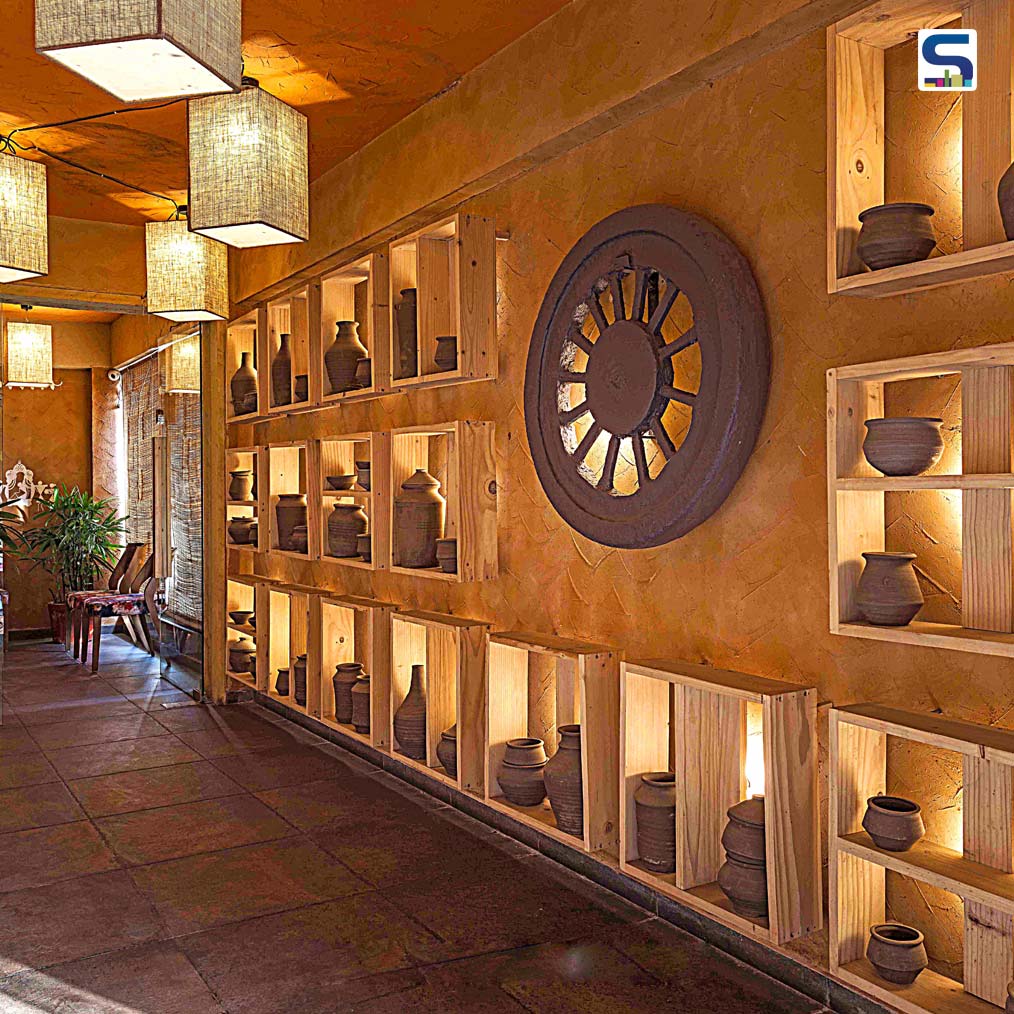
'Mitti Ke Rang' in Gujarat seems a simple organic restaurant but it attributes to various significant messages-- incorporating 100 per cent eco-friendly materials in design, propagating local craft and labour, minimising carbon footprints, and focusing on sustainable design and reducing the waste generated by prevalent urban lifestyles. Architect couple Snehal and Bhadri Suthar of Ahmedabad-based award-winning architecture and design firm- tHE gRID Architects used mouldable, green and versatile material- Clay- in combination with the dye extracted from the flower of the kesudo (flame of the forest) tree, turmeric, grain husk and a natural binder to design the objects as well as the surfaces in this restaurant. Architects shared with SURFACES REPORTER (SR) more details about the project. Take a look:
Also Read: A Wavy Façade using Clay Roof Tiles by Ar Manoj Patel, Manoj Patel Design Studio, Gujarat
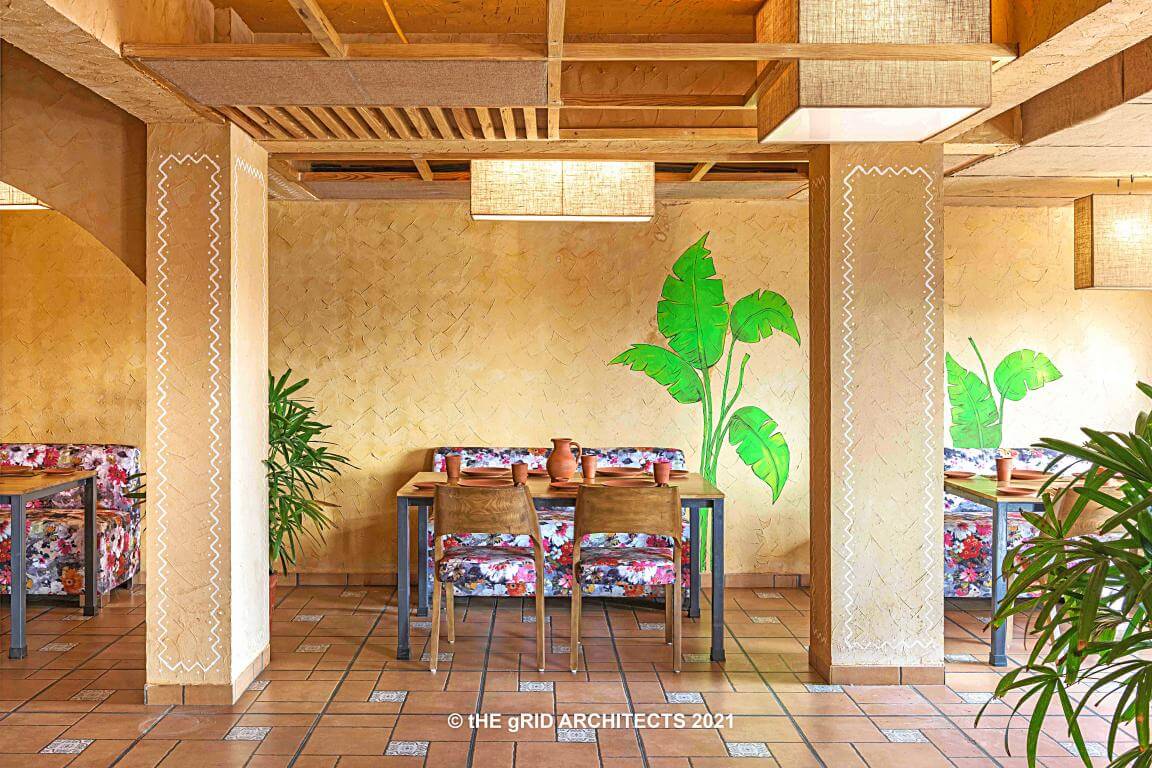
The restaurant facilitates the fundamental human requirement of socialising in an ambience that respects the earth.
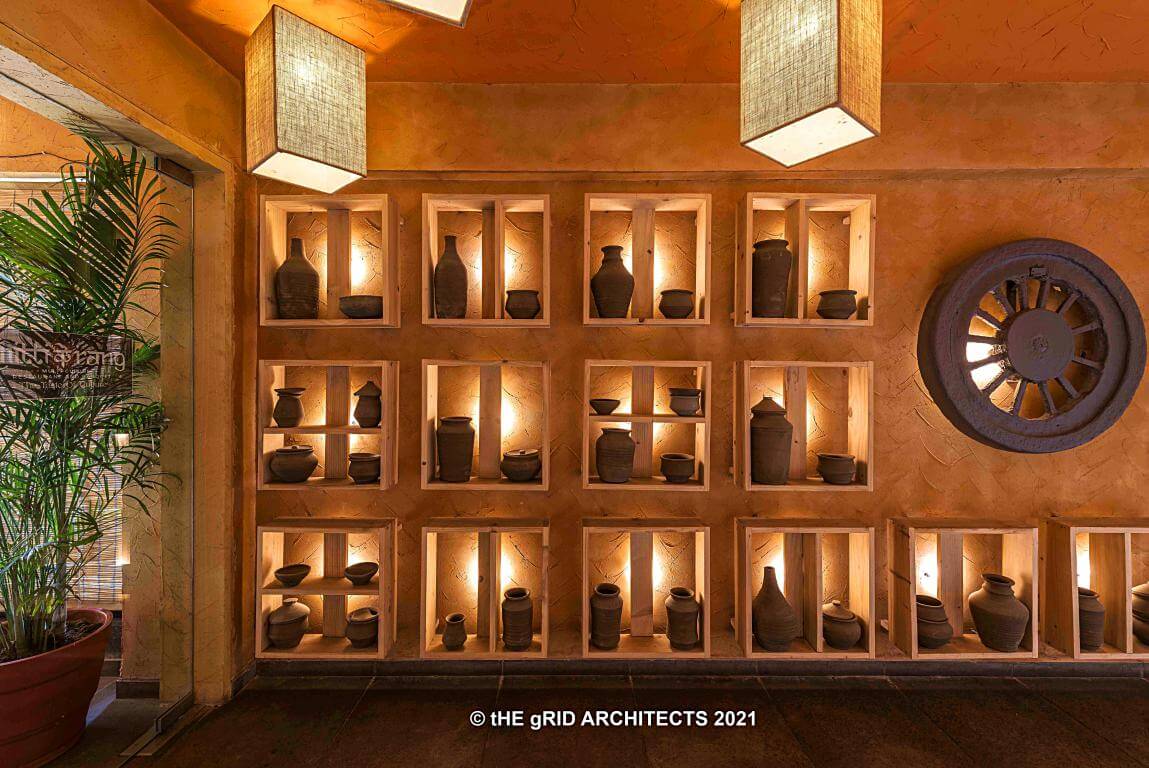
According to the architects, "it was a wonderful coincidence that the respectfulness towards resources and earth-energies that are the founding principles of The Grid Architects' practice converged with the owners' family links to pottery, and its inextricable connections to the earth." The attempt, then, became to build up this connection, heritage and talent in the new venture.
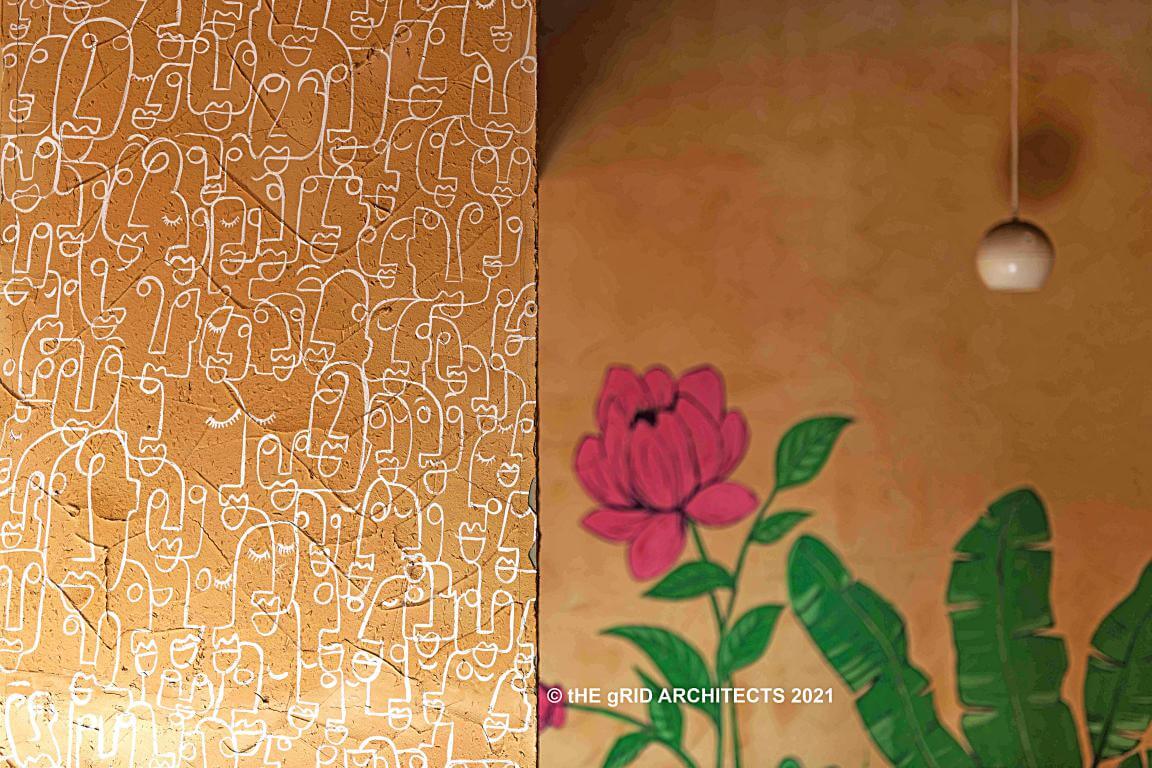
Reviving Age-Old Crafts
The architects who are known to create designs that are both, high on environment-sensitivity and aesthetics told the client to let his family, who is still into this craft, use their talent, and, in turn, and they would use these various forms of the traditional vernacular material in the restaurant. "This way, we could subtly but emphatically illustrate the family skill." The weaving of vernacular and technology, and the collaboration and contribution of the local stakeholders in the family and the architects has resulted in spontaneity and diversity in the design.
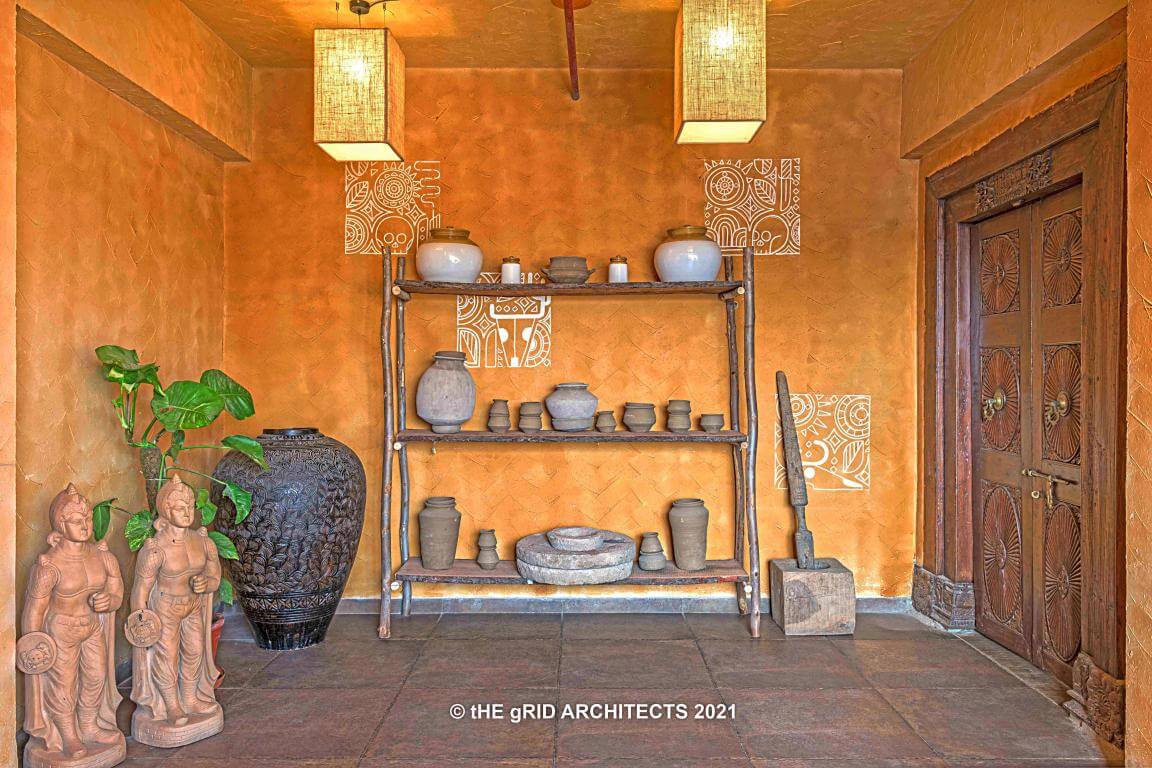
Material Palette
The firm used reclaimed wood, reclaimed jute, natural organic paste and local ceramic tiles in the entire project.
Earthen accessories and tableware — which contain natural goodness and possess their own health benefits — reinforce the idea of responsible design.
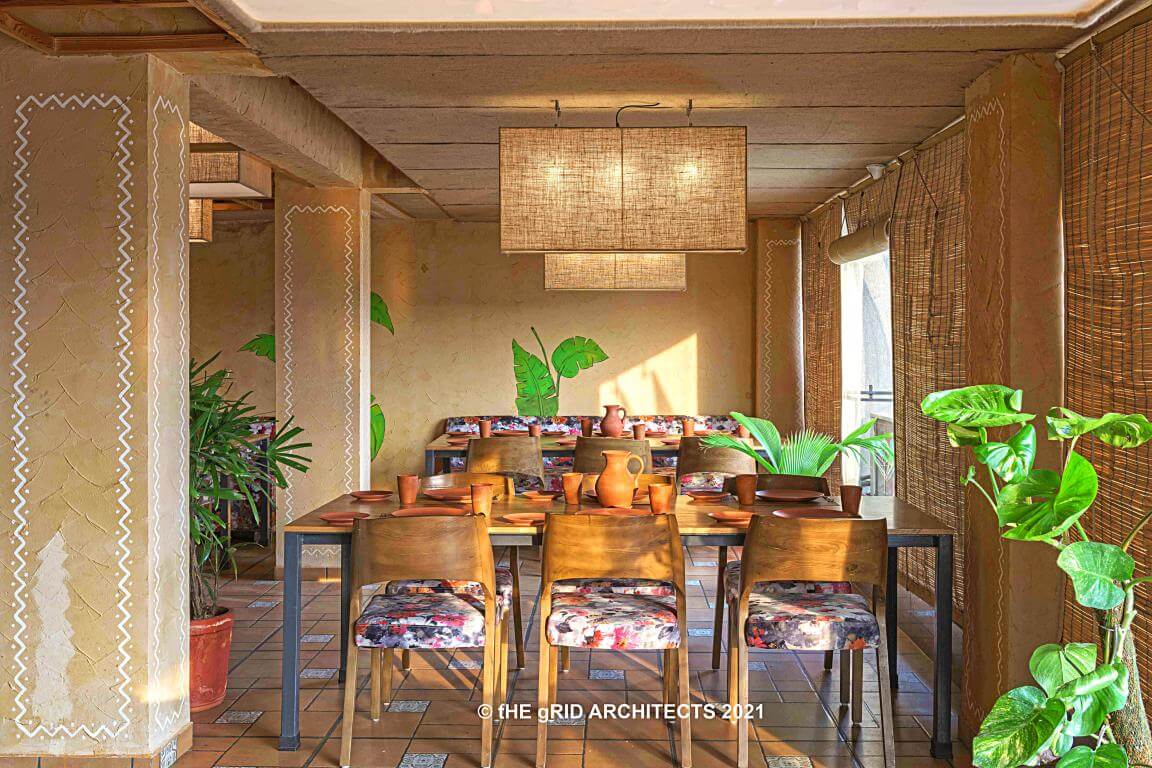
The firm used reclaimed jute to design screens and lamps while the furniture is created from reclaimed wood and adds warmth to the ambience. Local family artists have done wall art and paintings. And the ceiling is lined in reclaimed wood and jute panels (for acoustic purposes).
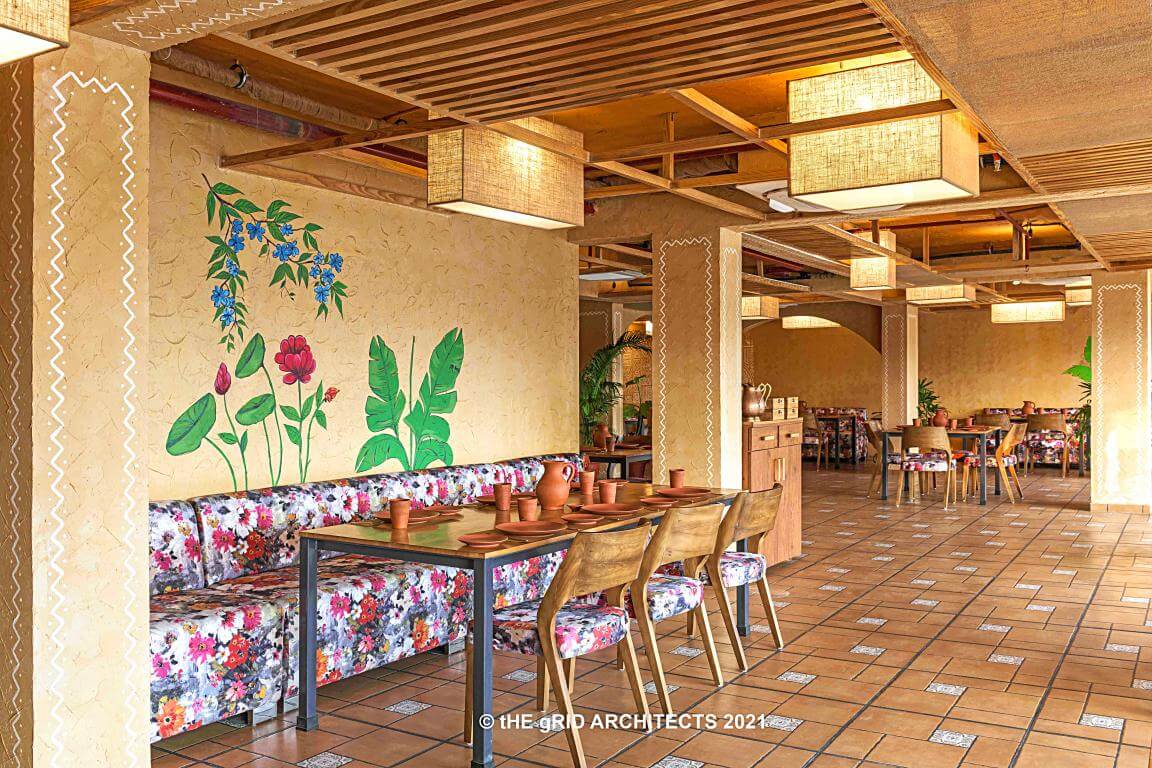
A specially customised jute screen is used to hide the AC compressor. The natural fragrance of the paste on the wall and ceiling increases the customer's cravings for food. The natural illuminance is pure and real, and the colours and textures resonate with the theme and design core.
Also Read: Creating a Wavy Façade Using Clay Roof Tiles
Clay is the Chief Material
The hero of the entire narrative, undoubtedly, is clay. The mouldable, green and versatile material is explored both, as a medium of creating objects and surfaces.
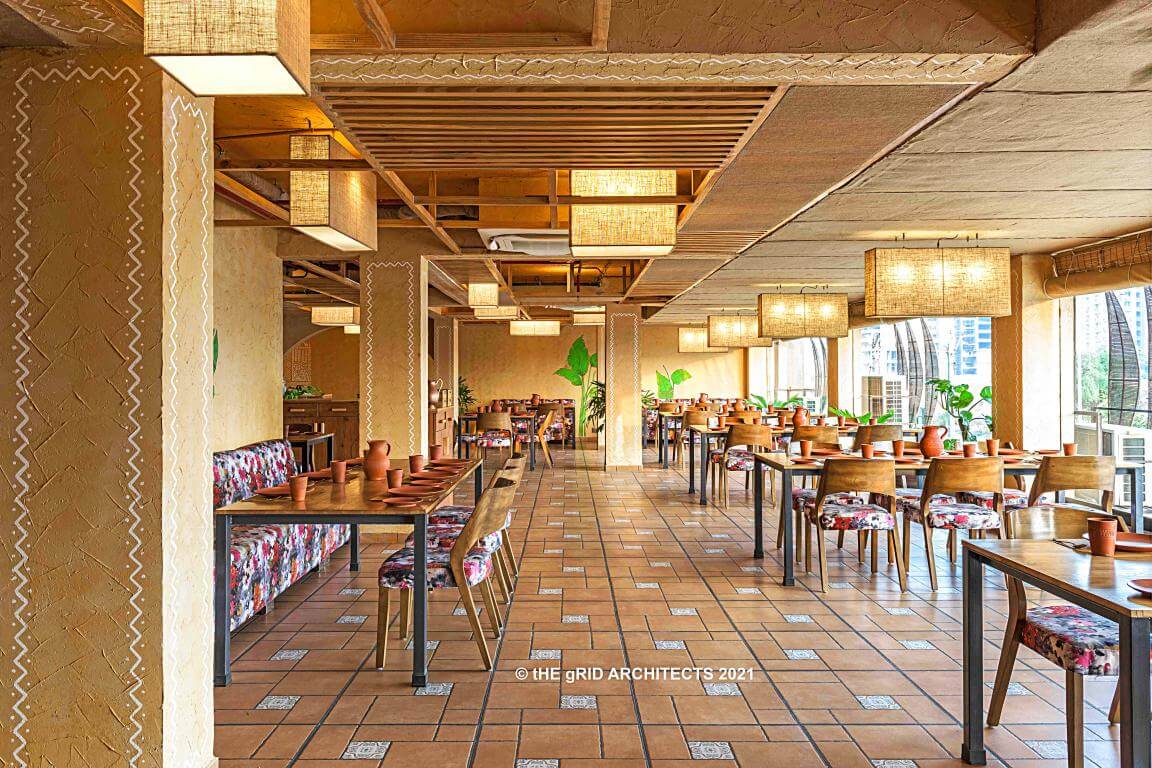
Its combination with dye extracted from the flower of the kesudo (flame of the forest) tree, turmeric, grain husk and a natural binder created a material distinct in colour and texture, resonating with the theme and the spirit of the design. And thus, the name Mitti Ke Rang.
The material development and research were done on site, and the design team takes pride in the fact that no artificial pigment or additives were used in the process.
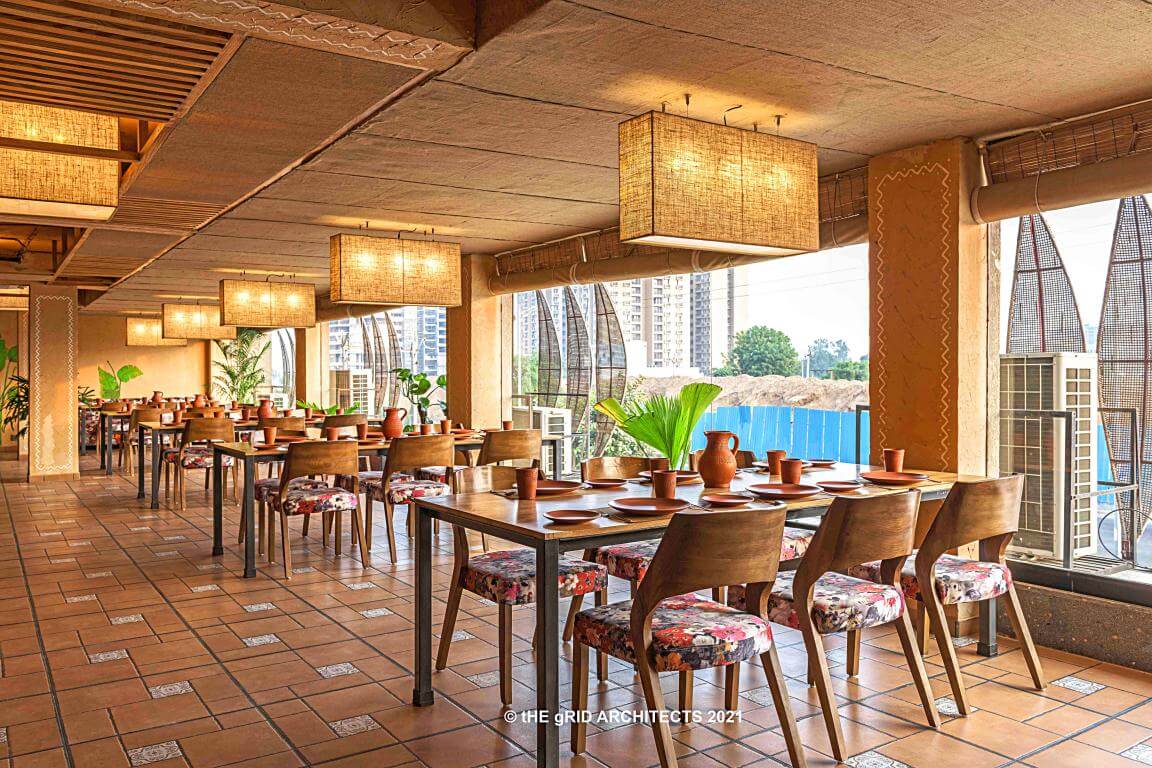
Both, the colour and texture of this earth-friendly plaster celebrate India's cultural wealth. The glorious golden shade, bearing associations with joy, health, positivity and happiness, evokes auspicious moments and festive occasions, especially in the Indian context.
With its beautiful handcrafted look and wave-like designs that trace the rhythm of hand movements, the surface's texture recalls simpler times when our connections to nature and the environment were much more potent.
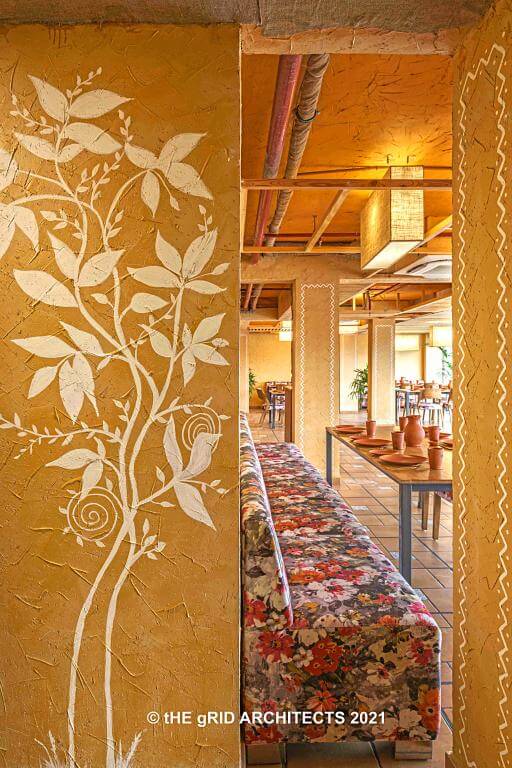
The central material's expression is ably supported by reclaimed wood, reclaimed jute, unfired clay vessels, and terracotta tableware. These make the spatial narrative richer and more enjoyable, and at the same time convey the commitment to build with a respect for the place we inhabit, resulting in Low embodied energy. "Awareness is a human quality," states Bhadri Suthar, who co-helms the practice with her spouse. "But what you do with that awareness is important."
Clean, Simple, and Minimal Interior Design
The design takes the route of simplicity, clean-lined forms and uncluttered interiors. "An effortlessness that arises from a true and honest approach," says Snehal Suthar, co-founder and principal at The Grid Architects.
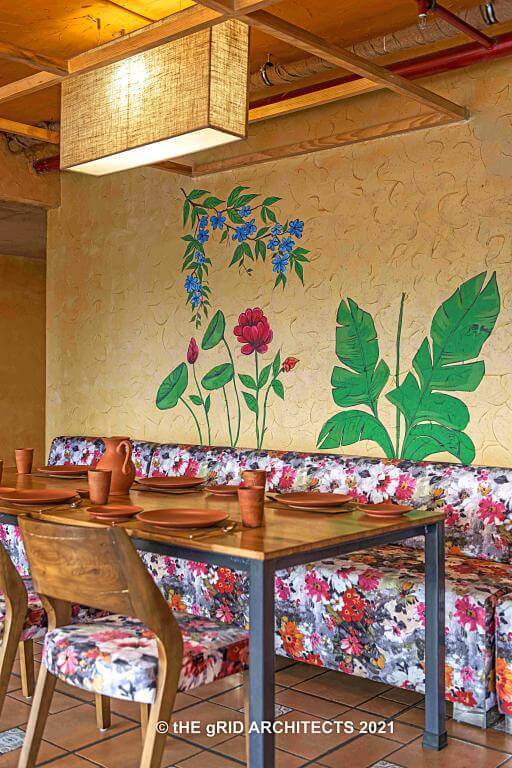
The entrance symbolises the client's heritage, our culture and the theme of the restaurant. A potter's wheel and different types of clay vessels and utensils, gently illuminated by reclaimed jute-shaded lamps, extend a warm welcome.
Also Read: Sustainable Projects: Use of Eco-friendly Materials in Flooring
The waiting area and anteroom continue the tale of the cultural legacy by showcasing objects from the client's ancestral home — notably a hand pounder/grinder, and the white and green pots.
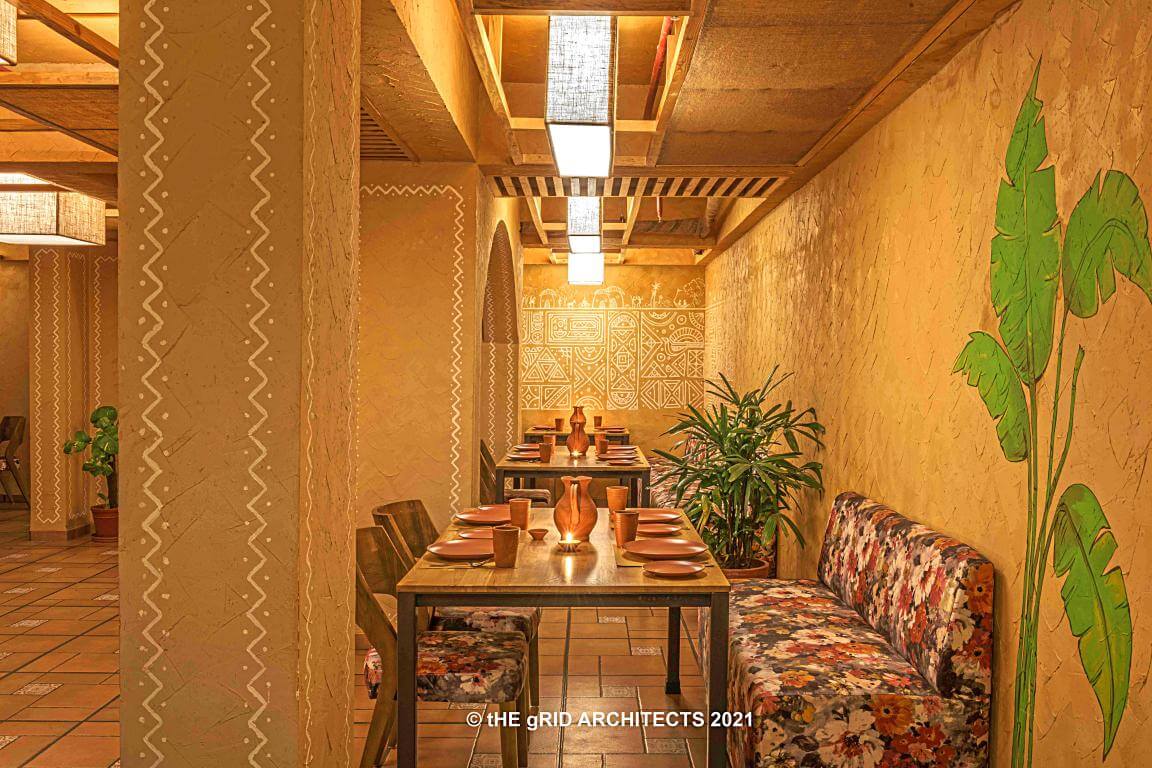
The linear programme inside is designed parallel to the glazed, road-facing windows to leverage views and natural light.
A Natural Touch of Green and Freshness
This animating force combines with earthy colours, subtle textures and the freshness of plants to create an energised experience that speaks of the well-being of both, the body and soul.
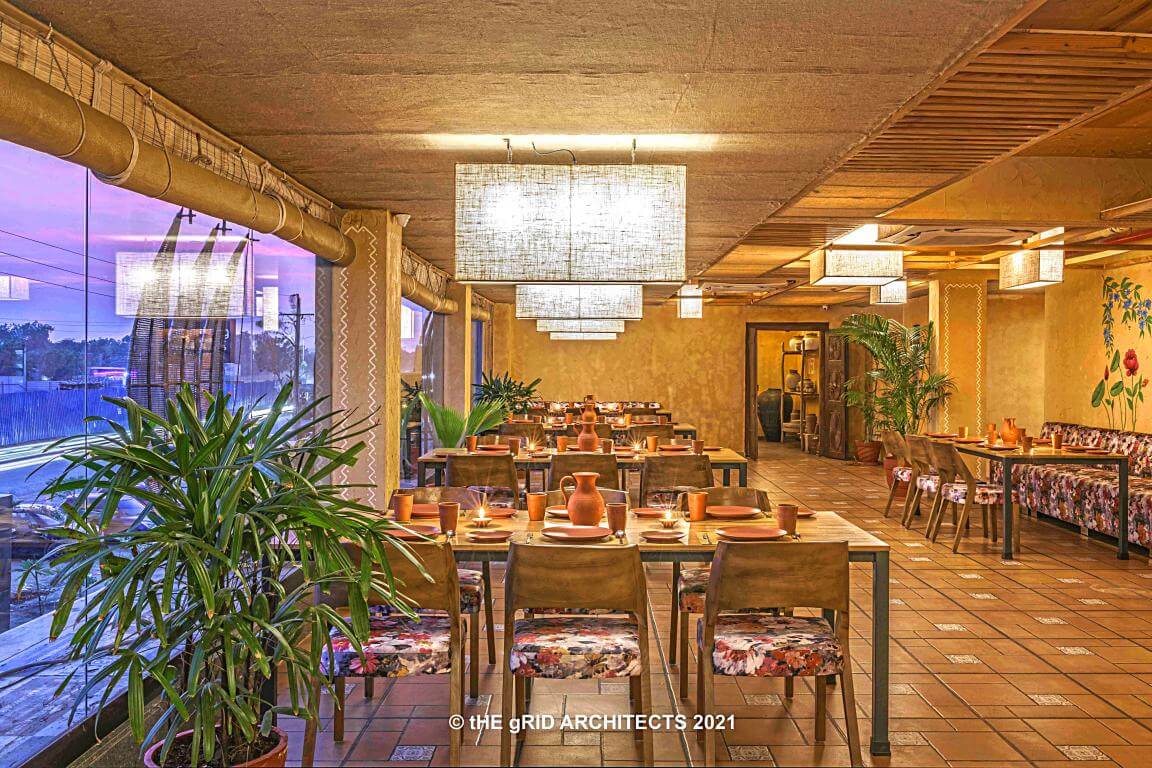
Cosy seating islands with chairs and comfortable wall seating with sofas provide private, cosy dining spots that are at once open, yet private." This dine-in is designed to work in harmony with nature and to trigger diverse sensations to encourage the visitor," state the architects. "For instance, we hope that the person who experiences the space over time gets an idea about how the material will change colour naturally with time, as well as through the way it reacts with light."
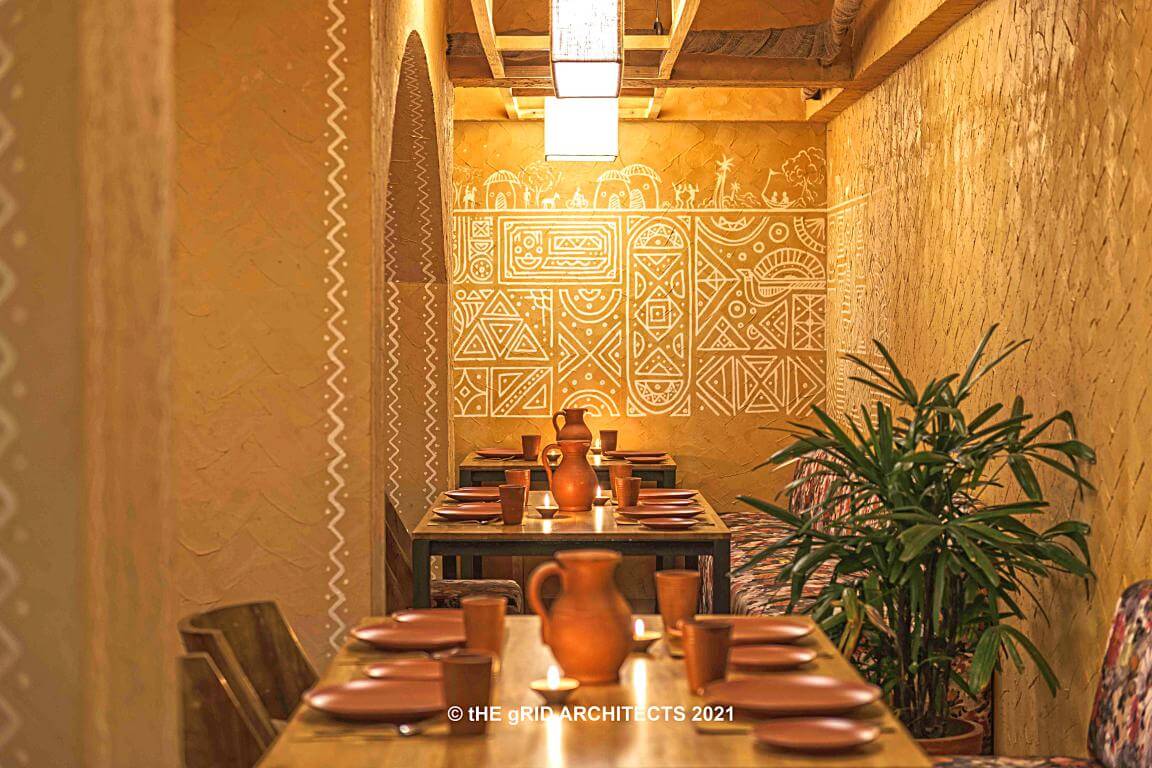
Triumphing over constraints posed by budget and a short timeline of 60 days, The Grid Architects have successfully delivered a space that is rooted to the earth and crafted from it.
Project Details
Project Type: Restaurant
Project Name: Mitti ke Rang ( clay and colours of clay)
Built up Area: 3250 sq ft
Design Team: Snehal Suthar and Bhadri suthar – tHE gRID Architects
Photo Credits: Photographix India
Keep reading SURFACES REPORTER for more such articles and stories.
Join us in SOCIAL MEDIA to stay updated
SR FACEBOOK | SR LINKEDIN | SR INSTAGRAM | SR YOUTUBE| SR TWITTER
Further, Subscribe to our magazine | Sign Up for the FREE Surfaces Reporter Magazine Newsletter
You may also like to read about:
Manoj Patel Reuses Clay Roof Tiles Depicting ‘Toran’ Graphics to Create the Distinct Façade of This House | MPDS | Vadodara
Cement and Steel Free Breathable and Recyclable Buildings by Malaksingh Gill | Mumbai
RCA Designers Created Unique and Amazing Ceramic Pottery Out of Toxic Waste Material
and more...